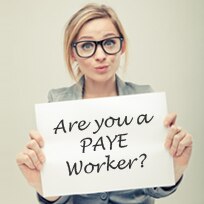Many PAYE workers in Ireland are confused about tax.
In fact the most common question we are asked here at Taxback.com is “What tax can I claim back?”
So in this blog post we are going to outline exactly what you can claim tax back on.
The good news is that the average PAYE tax refund with Taxback.com is €880, and you can claim money from as far back as 2011.
At Taxback.com we’ve refunded millions of euro to IrishJobs.ie candidates over the last few years, but there are still people who’ll leave money with the taxman – don’t be one of them!
Who Can Claim?
Most employees in Ireland pay tax through the PAYE (Pay As You Earn) system, where your employer deducts tax directly from your wages for Revenue. Every PAYE worker gets tax credits, which include reliefs you may be able to claim depending on your circumstances.
Even if you’ve left the country but have worked in Ireland within the last 4 years, you can still claim.
Do you know what you can claim tax back on?
Medical Expenses
You can claim relief on most un-reimbursed medical expenses and on qualifying, non-routine dental expenses, like for example, crowns and root canals. Medical expenses incurred abroad may also qualify for tax relief in Ireland where the service provider is a registered practitioner in his/her country of residence.
Medical Insurance
Where an employer pays medical insurance on behalf of an employee, it’s taxed as a BIK (Benefit in Kind) and tax relief at source is granted to the employer. Employees may be able to claim relief too and it could be woth up to €200 per adult or €100 per child.
USC Overpaid
Medical card holders with an income not exceeding €60,000 for the tax year are only subject to USC at a max of 4%, and aren’t liable at the higher rate of 7%. If you get a medical card during the year, it’s likely you’ve overpaid USC and it’s therefore worth reviewing your tax position.

Change in Personal Circumstances
If your circumstances have changed through marriage, separation, a new job, emigration or returning home, it’s important to review your tax position for potential refunds.
For example, if you changed employment during a tax year, tax credits and reliefs mightn’t have been allocated to the new employment correctly.
If you’ve only been in employment for part of the year, there may be unused tax credits which could create a refund.
If you’re either entering or leaving Ireland during the middle of a tax year, relief available is known as ‘Split Year Treatment’.
Marriage/Civil Partnership
Married couples and civil partners may be able to transfer unused tax credits from one to the other. It’s never a bad thing to be taxed jointly.
Tax relief, known as “Year of Separation Relief” may be available to people who separate and can generate substantial tax refunds.
Flat Rate Expenses
This is for expenses incurred in the performance of work duties, and the amount depends on the nature of your employment. Standard flat rate expense allowances are set for various classes of employee.
For example, a plumber who is also a welder can be granted a flat rate expense of €205 per year and a head waiter at a hotel can get €127 per year. Nurses who supply and launder their own uniforms can claim a deduction of €733.
You don’t need receipts for flat rate expenses once you’ve confirmed you’re in a qualifying employment, and can claim for the previous 4 tax years, i.e. as far back as 2011.
Rent Relief for Private Rented Accommodation
If you pay rent to a private landlord, you could claim a tax relief for the amount paid. If you were in a rental agreement on 7th December 2010, you can claim tax credit for the year 2011 onwards.
You can also claim relief for rent payable for premises outside the state, as there aren’t any territorial limits for this tax credit.

Recommended jobs for you
Tuition Fees
You can claim tax relief on 3rd Level course fees for approved courses at approved colleges. Qualifying fees are tuition fees, including the “student contribution”, but don’t include examination fees, registration fees or administration fees.
Revenue disregards a certain amount of the qualifying tuition fees in respect to each claim. For example, for a full-time course in 2014, the first €2,750 is disregarded from the qualifying tuition fees.
Fees for private colleges can be well above the level disregarded, which could mean a valuable tax credit.
Keep your Receipts!
The most important thing to remember is to keep receipts – medical receipts, tuition receipts, and any correspondence from Revenue to make the tax reclaim process easier.
Find out what you’re due with Taxback.com.
This article was prepared by the taxback.com team for IrishJobs.ie candidates. If you would like to speak with taxback.com about filing an Irish tax return then visit www.taxback.com or email them on info@taxback.com or call them on 056 779 7345
